Ready to learn more?
Get all the details straight to your inbox!
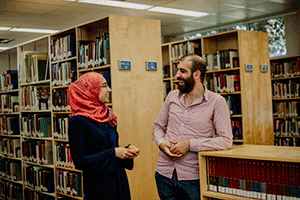
The Luther Library has over 24,000 items in its collection, 5,000 books checked out per year, and 7,000 students who come through its door per month.
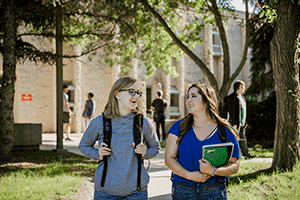
Luther College is a great choice for high school to university transition. Enjoy all the benefits of a larger campus, without feeling lost in the crowd. Our community is full of caring mentors and peers to ensure a positive student experience.
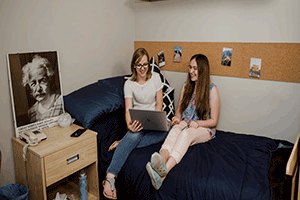
Our student residence, The Student Village at Luther College, welcomes residents from ALL post-secondary institutions in Regina. Rooms come with a meal plan, free laundry, free wi-fi, and a great sense of community.
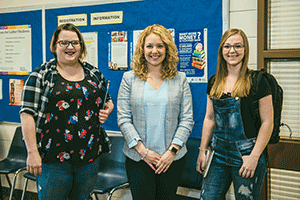
The priority deadline for academic application is March 15. To book a personalized enrolment counselling appointment, contact our Recruitment Office at 1-306-206-2117.
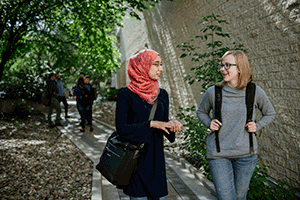
You can book a tour of Luther College, the U of R campus, and our student residence, The Student Village at Luther College, any time throughout the year. Contact our Recruitment Office at 1-306-206-2117.

To enrol as a Luther College student, simply fill out the University of Regina application form and select Luther as your campus of choice.
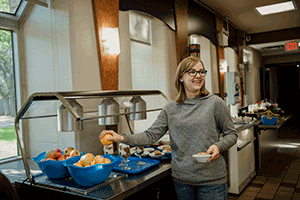
Living in The Student Village at Luther College, our student residence, comes with a choice of healthy, nutritious meal plans. That means no grocery shopping, no meals to cook, and no dirty dishes to worry about. You can focus on your studies and wellness!

Smaller class sizes at Luther College means more individualized attention and better connections with your professors, classmates, and academic advisors.
Get all the details straight to your inbox!
By Yvonne Petry
How do people with divergent – sometimes mutually exclusive – religious beliefs and cultural practices figure out how to live together? In Canada, this question has been posed at numerous points in history and yet, given a new global context, it is one that is still needs to be asked. Lori Beaman, a professor in the Department of Classics and Religious Studies at the University of Ottawa and a Canada Research Chair in the Contextualization of Religion in a Diverse Canada, is one scholar who directly tackles this question and all that it entails.
In her essay, “Deep Equality: Moving Beyond Tolerance and Accommodation” Beaman begins by asking: “What is wrong with ‘tolerating’ others as the basis for dialogue? Why is accommodating someone problematic?” She notes that such concepts are laden with an implicit inequality and are therefore an imperfect starting point for dialogue. Rather than seeing equality as the goal of dialogue, she argues that it must itself become a starting point in order for genuine multicultural and inter-religious dialogue to begin. Her model of deep equality attempts to provide an alternative to merely “tolerating” difference and “accommodating” diversity.
Responses to Beaman’s essay have been written by three of Luther College’s faculty members: Mark Anderson (History), Dorothy Lane (English) and William Stahl (Sociology). Anderson draws on his background in the history of European colonialism to ask whether a notion of deep equality does not in some ways undermine our capacity to critique atrocity and exploitation, both past and present. Lane uses her expertise in post-colonial literature and criticism to reflect on how the language of imperialism is itself entrenched in our political and legal institutions. And Stahl questions whether deep equality goes far enough in addressing questions of social and economic inequality. In her response, Beaman reflects on the path that took her to her current intellectual stance and agrees that the pursuit of answers must go beyond the legal and political realm. This series of essays provides a thoughtful and challenging commentary around issues that are pressing both here in Canada and around the globe.